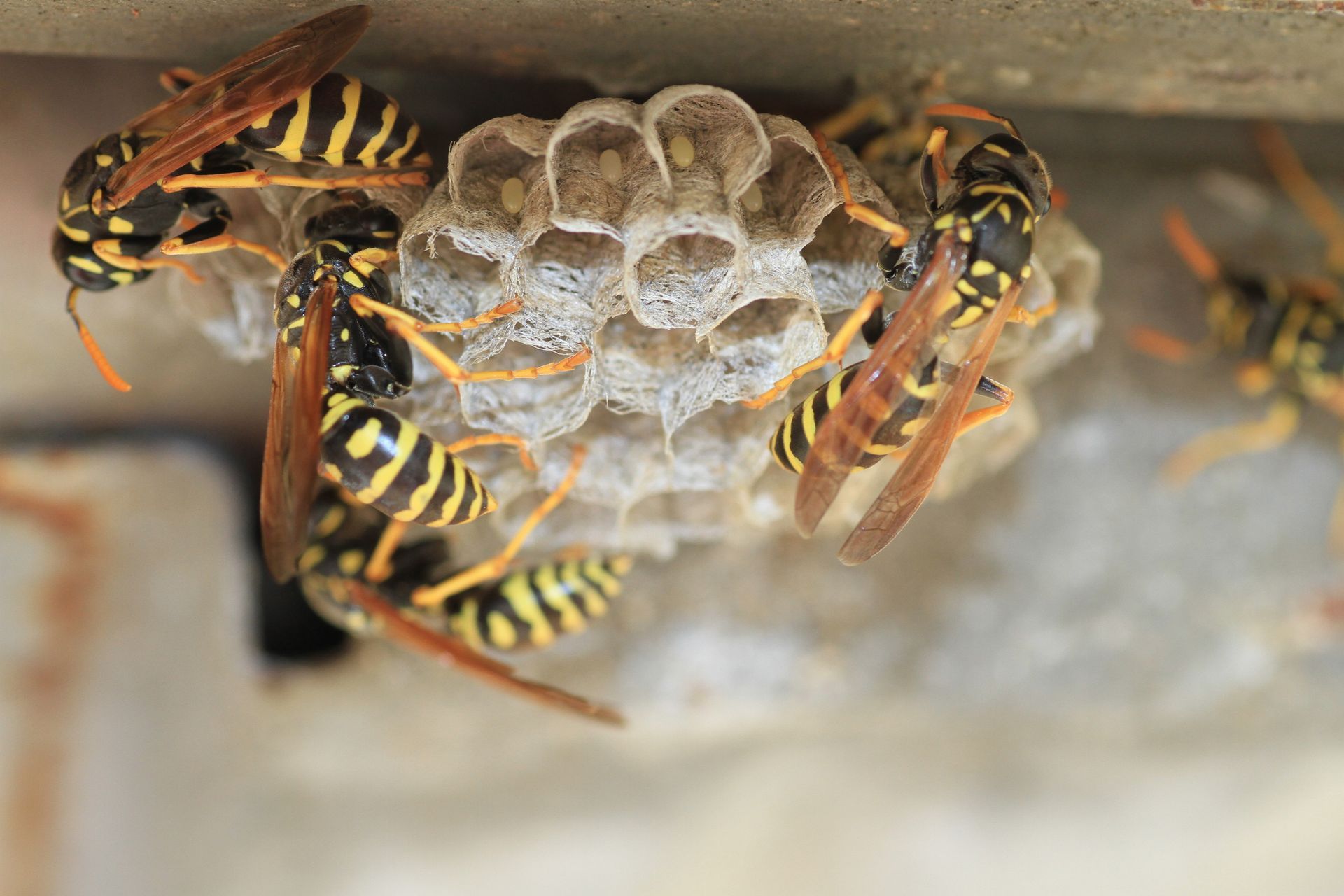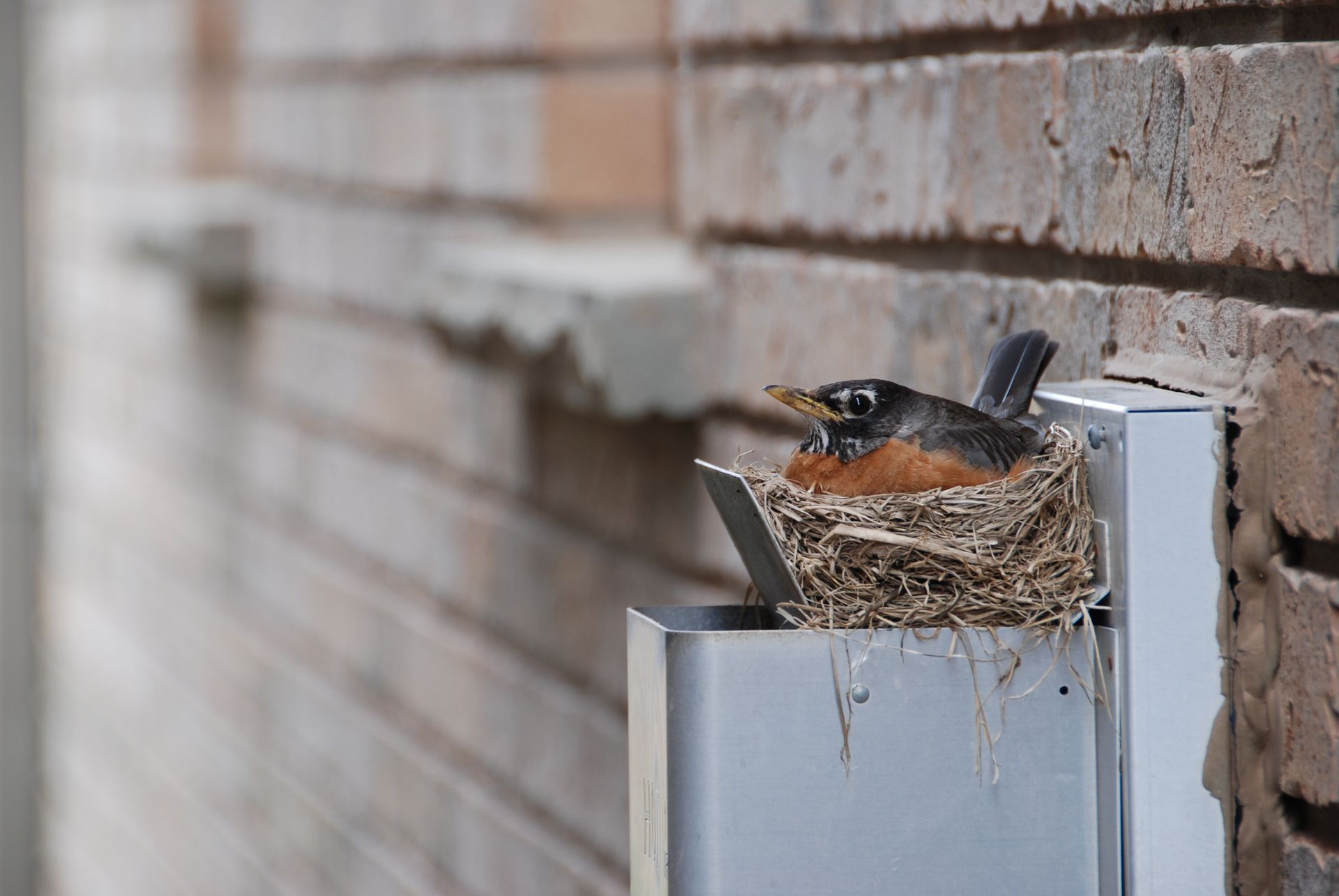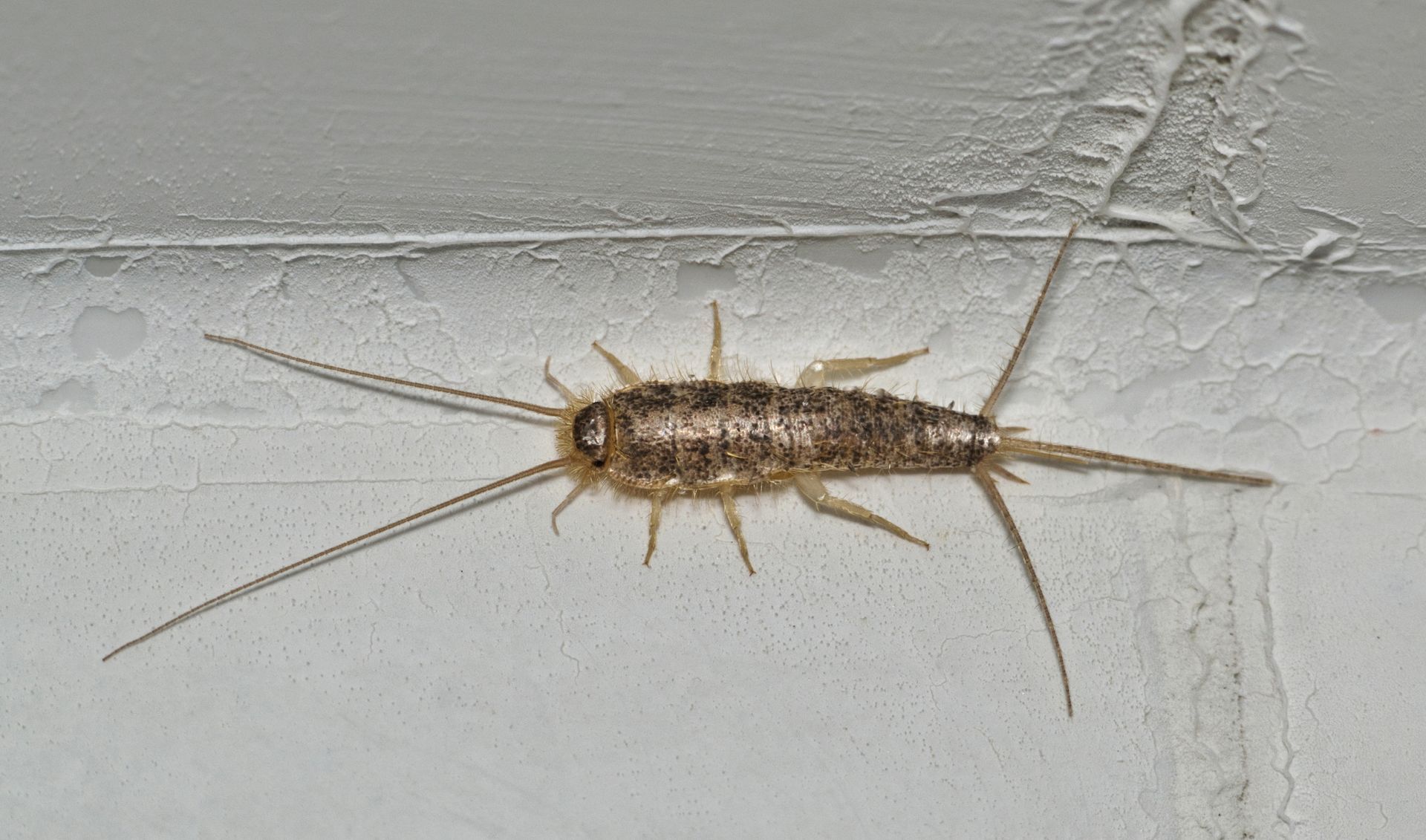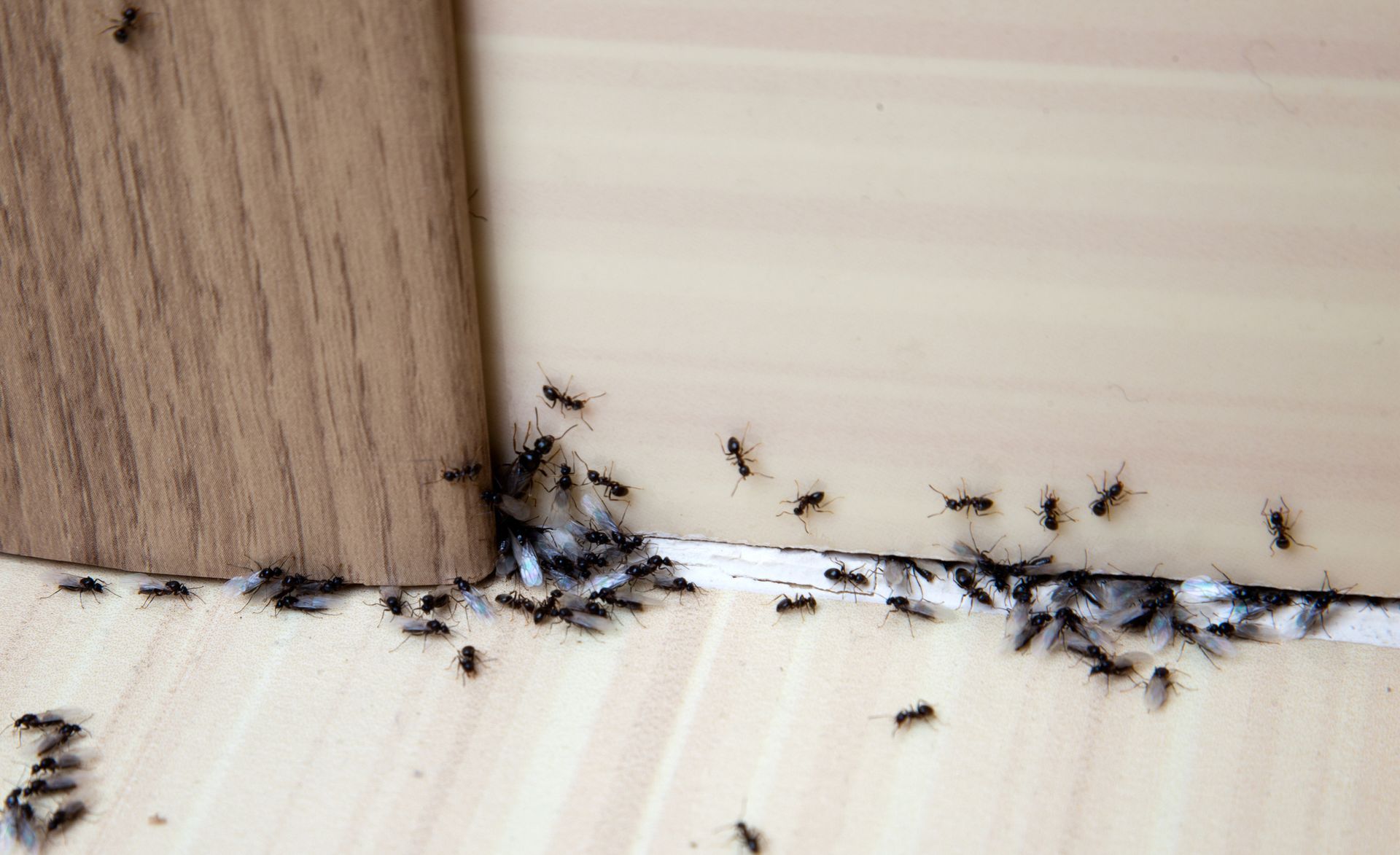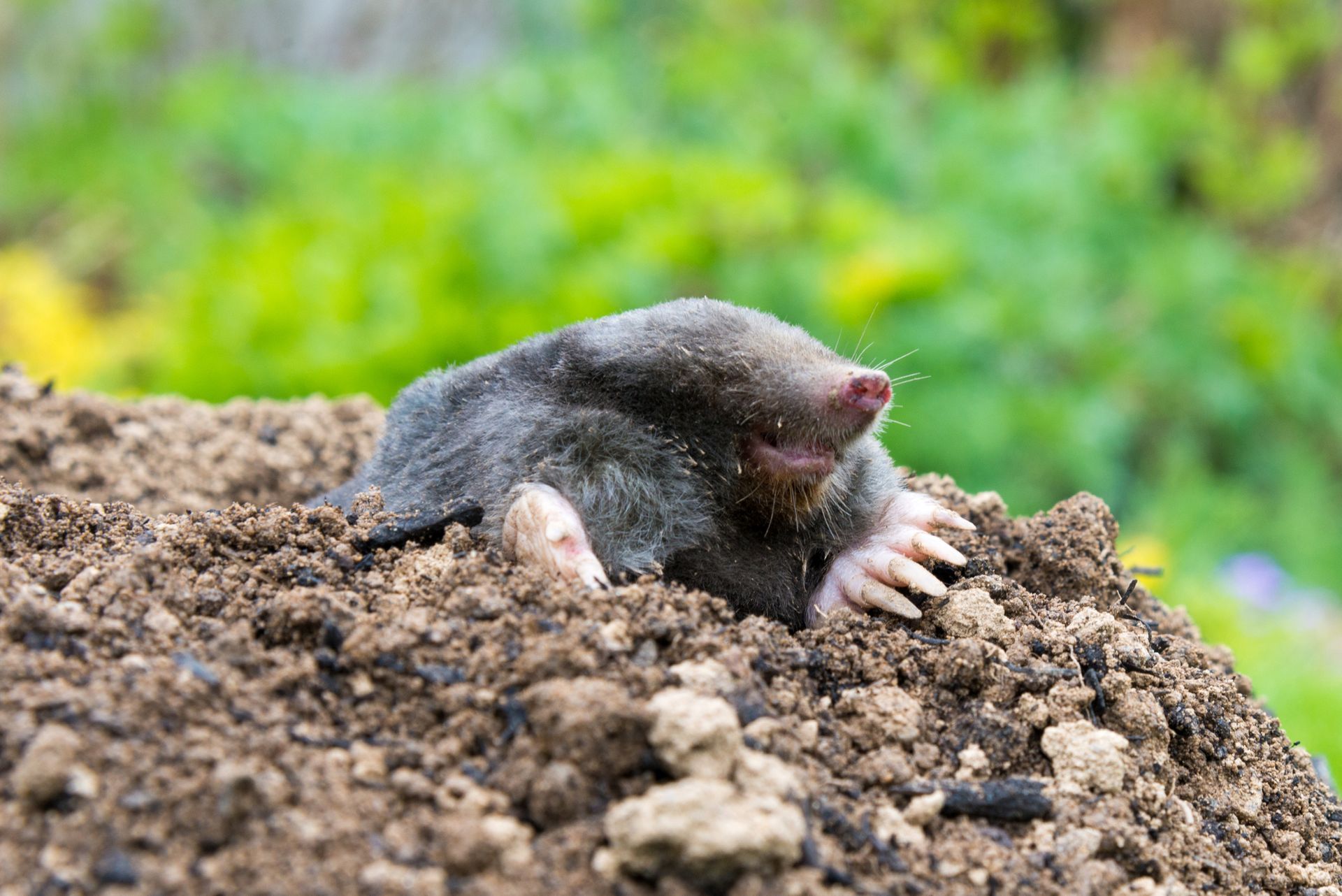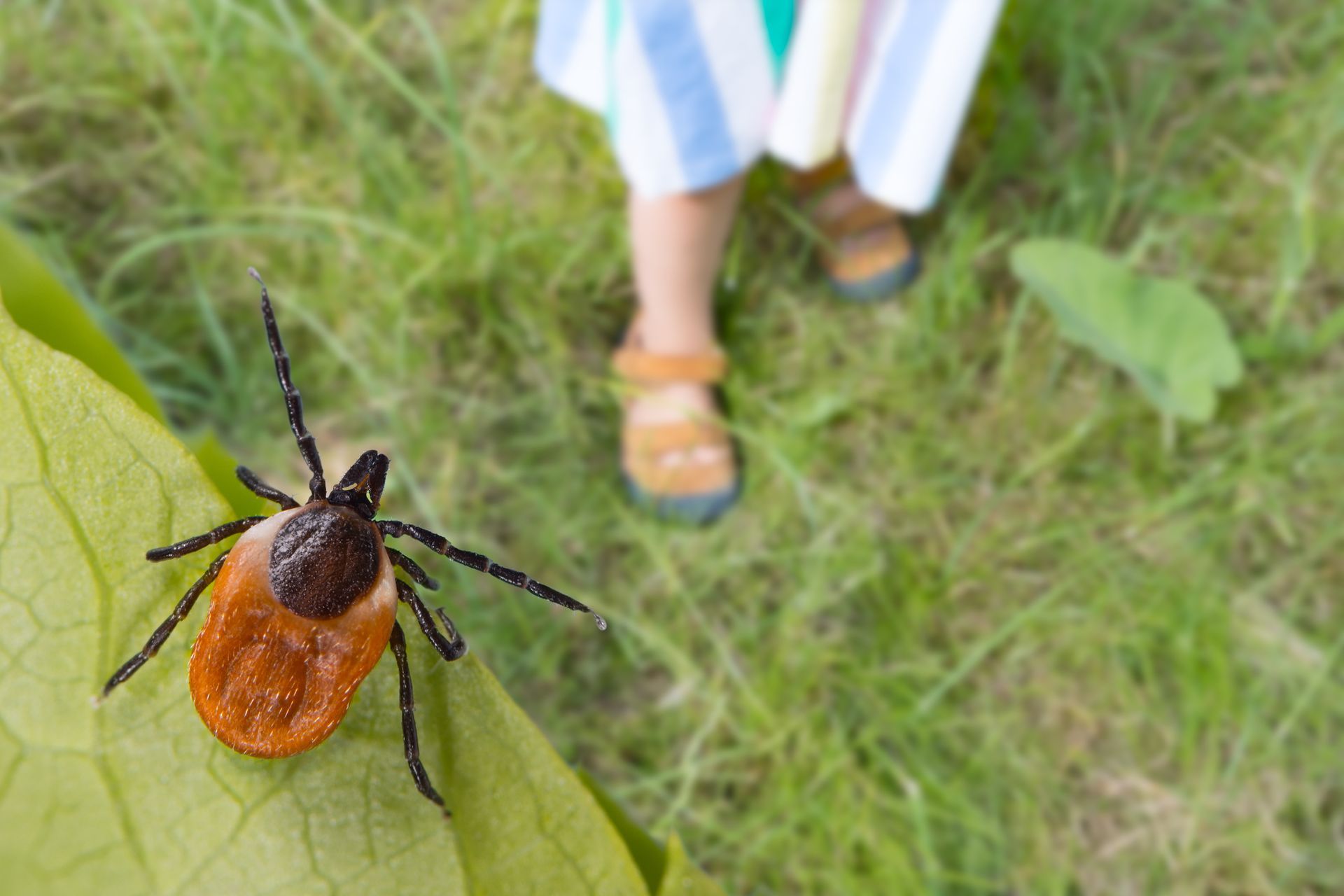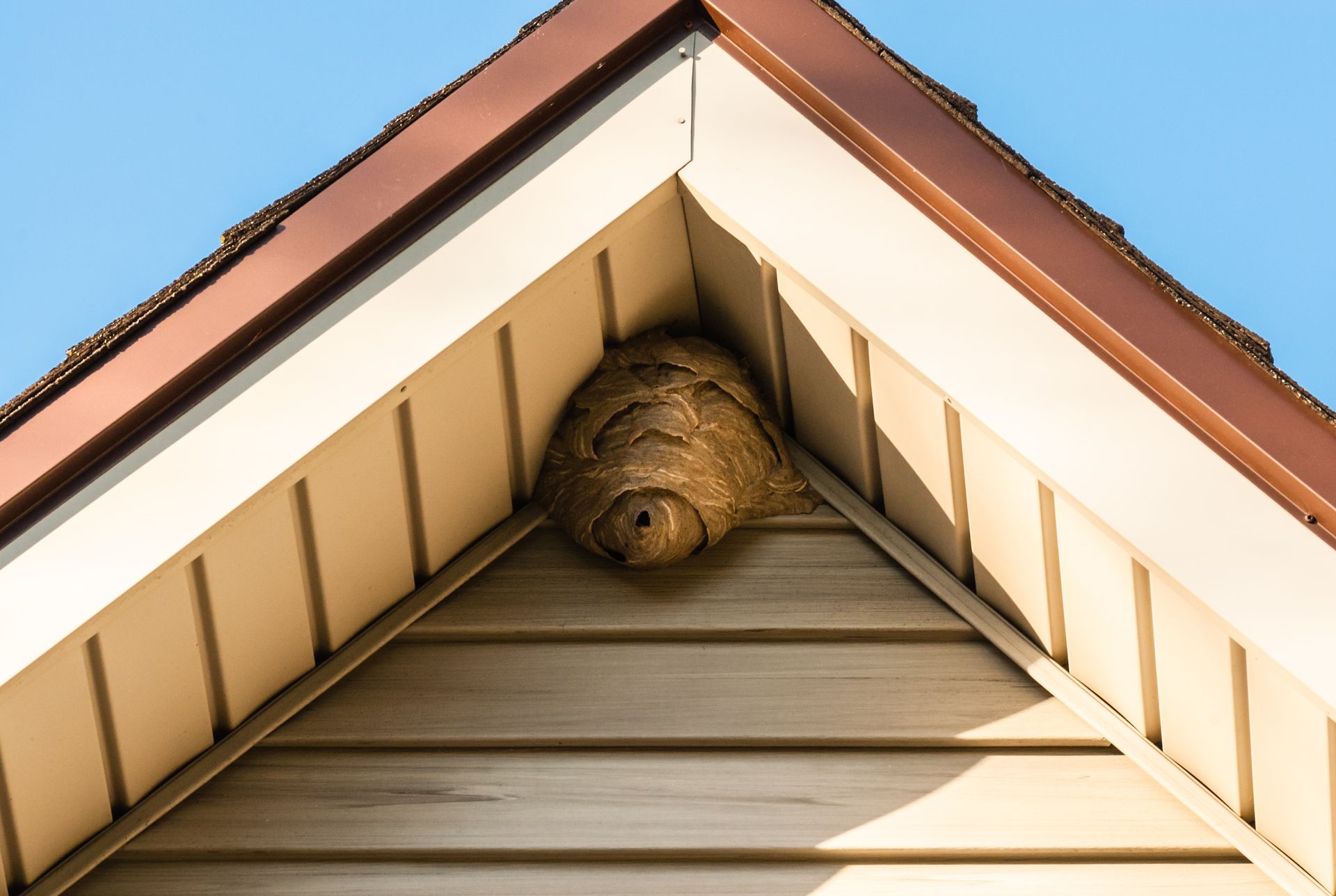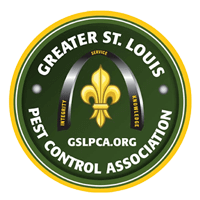PEST GUIDE FOR HOLPER'S PEST & ANIMAL SOLUTIONS

Sign up to our newsletter
We will get back to you as soon as possible
Please try again later
If you are familiar with Holper’s, you know that we esteem knowledge above all else. In fact, in the pest control business we possess a unique belief that the depth of your knowledge is far more valuable than the power of your poison. We encourage you to be informed. Use this Pest Identification Library to help identify your pest. Educate yourself about your pest and animal problems, about the pest control industry, and about what the options are for working with both.
If you have additional questions, need immediate help, or just want to talk to someone about your day, please don’t hesitate to contact us. We’d love to hear from you!
Check out our chat with Frisella Nursery about how to prepare your home for bugs and pests!
We were invited onto 97.1 "Right At Home WIth Rich" to talk about pest control - check it out here!
FAQS for Holper's Pest & Animal Solutions
At Holper’s we get a lot of questions about Missouri & Illinois pests! We love your questions because we love bringing peace of mind back to the homes of our customers. With every question we get to share our decades of experience and know-how through our answers. Some of these may be things you have wondered about yourself!
General Pest Control
-
Is there electronic rodent control?
Likely you are thinking of sonic rodent control. We have not heard of anyone using it successfully. Concerning to us is that it is advertised as pet safe. How can something be safe for your small pets if it can kill a large rodent? The sure way to achieve rodent control is professional help. Once we have your rodent issue under control, we keep it under control with snap traps indoors and baited rodent stations outside.
-
Are there dust mite killers?
Every mattress should have a mattress cover to help with this. We sell one that does kill dust mites. At the very least a mattress should have an encasement, washed at minimum every three months.
-
What is the rodent repellent sound?
It doesn’t matter what the sound is, it will not be effective.
-
Can bad tuckpointing lead to pest infestations?
Absolutely! Even a tiny opening can create a pathway for unwanted pests.
-
Can you use newspaper for insulation in walls and attics?
Not regular newspaper. However, ground cellulose that has been treated with borates can be used as insulation.
-
What is better for insect removal, lime or sulfur?
In short, neither! Neither lime nor sulfur is an approved treatment for insect removal, and the potential risks far outweigh any potential temporary reduction in numbers. Only approved pesticides should be used.
-
How do you hang Christmas lights without using your gutters?
This can be accomplished by using shingle tabs attached to the roof line. For your safety, and to save yourself hours and hours of time, call Holper’s Holiday Lights at 314-544-7378 to have your lights professionally installed.
-
What kind of bug spray can kill roaches, spiders, and stuff like that?
There is no “one-size-fits-all” approach when it comes to pest control. That’s why the knowledge of a professional pest control technician is so valuable. Roaches need to be baited vs. merely using a spray. Microencapsulated type insecticides will work on spiders. While this type of spray could initially kill some roaches, it won’t solve your roach infestation issue.
Ants
-
What can I use to keep ants out of the house?
Unfortunately, there are no Over-The-Counter (OTC) products available that will keep ants away. Most OTC sprays merely disperse the ants to other areas in the house. Holper’s has a seasonal ant program, which consists of 2 sprays during the height of ant season. If your goal is to keep ants and other seasonal pests away year-round, our Silver, Gold, and Platinum Services provide that peace of mind.
-
Will Borax kill ants?
Borax is dangerous for humans, so this method should never be attempted.
-
How much would it cost to get your house bombed for ants?
Regardless of how much someone will charge you to do it, bombing ants is not an effective treatment. Ants primarily live outside and come inside for water and food, so bombing the inside of your home won’t reach the majority of the problem. Also, there is no resid
Bats
-
How do I kill a bat in the house?
The safest answer is that you don’t. As bats can be rabid, a bite can mean a series of painful injections. Leave the trapping to a professional with the proper safety equipment, training, and experience. Bats must be left intact to be tested for rabies.
-
Can you get rid of bats in the attic with mothballs?
Human exposure to mothball fumes is extremely dangerous, and possibly even deadly. Do not try this method.
-
How do I get rid of bats in my attic?
Bat removal involves sealing the structure, except where the bats are entering and exiting. Those entry/exit points are fitted with a one-way door so that bats can’t re-enter once they exit! After all the bats leave, the one-way doors are taken down and the entry/exit is sealed, bat-proofing your home.
Bed Bugs
-
Are bed bugs contagious?
Bed bugs are not believed to transfer any diseases when they bite, so in that sense, they cannot be contagious. Possibly the person who asked this question was wanting to know if they are easily spread, and the answer is a huge YES! Bed bugs hitch rides on clothing, purses, diaper bags, backpacks, luggage, etc. If they can crawl in it or on it, they can hitch a ride back to your home from any building with an infestation. Yuck!
-
What can I buy at the store to get rid of bed bugs?
Unfortunately, nothing sold over the counter will work on bed bugs. You’ll save money in the long run if you call a professional at the first sign of bed bugs before you spend money and time trying to do it yourself. Only a professional has the materials, equipment, and know-how to succeed.
-
What do bed bugs look like?
Less than ¼” long, adult bed bugs are flat, wingless, oval-shaped insects that are brown in color. Younger bed bugs are lighter in color and tinier. The eggs that bed bugs lay are minute and white in color.
-
How do you get bed bugs?
Truthfully, any time you leave your house, you are at risk of picking them up. They hitchhike on clothing, luggage, backpacks, purses, diaper bags, etc. When someone whose home has bed bugs leaves their home, they carry them to the next place they go–fitting rooms, movie theaters, restaurants, hotels, rental cars, offices, friends’ homes–they can go anywhere!
-
Does light prevent bed bugs?
Leaving your lights on will not deter bed bugs.
-
How long does it take for you to realize you have bed bugs?
This varies greatly by the size of the infestation and the sensitivity one has to the bites. It can take a month, or in some cases, the whole home becomes infested before someone notices. That’s why it is wise to have a professional do an inspection–catching things early greatly decreases your cost to treat and the time needed to complete the extermination.
-
Can you do a heat treatment on your car for bed bugs?
Holper’s never recommends heat treatments for bed bugs as it doesn’t provide any long-term residual effect. A professional should treat all the cracks and crevices of the car with materials approved for bed bug extermination.
-
How do you get rid of bed bugs in one day/overnight?
In short, you can’t. There is no magic wand. Some companies advertise heat treatments as such, but when your belongings are brought back into your home, you are likely just re-infecting your house. With Holper’s, we treat your home and belongings for a complete extermination.
-
Do bed bugs carry disease?
They do not carry any known diseases, but some people will have an allergic reaction to the bite. Swelling, redness, and itching can occur, and there is always the possibility of infection and scarring if the bite is scratched.
-
Do they make a bomb that kills bed bugs?
So-called “bug bombs” that purport to eradiate bed bugs usually only succeed in pushing the infestation into new areas. Bed bugs are difficult to eliminate and extermination should be left to professionals.
-
What laundry detergent kills bed bugs?
There is no laundry detergent in and of itself that kills bed bugs. What kills the bed bugs is washing them in hot water followed by 90 minutes of drying in high heat.
-
How many days does it take for bed bugs to die without blood?
Bed bugs can live a year without ingesting blood! It is nearly impossible to cure a bed bug infestation by hoping they will just die off.
-
Can bed bugs live in the cold?
Yes, they can. In extreme cold, they go into a dormant state, but the cold temperatures outside will not have an impact on them inside of your home.
-
Is there an easy way to get rid of bed bugs?
In a word, no. Bed bugs are one of the hardest types of insect to effectively exterminate. Professional treatment is always required from a trained technician to thoroughly inspect your entire home to check for all locations that the bugs might have hitchhiked to aboard you or your belongings. It is a very involved process to treat all the development stages of the bed bugs to give you a home free of bed bugs. You’ll save money and time if you call a professional right away, rather than spending money and time trying to DIY first.
-
What disinfectant will kill bed bugs?
The only way a disinfectant would be able to kill a bed bug is if you soaked it in disinfectant, and obviously, you are not going to submerge your furniture, clothing, and belongings in disinfectant. A spray of disinfectant will do nothing, as the effect wears off as soon as the area is dry. Bed bugs are tough. Only trained professionals who know how to treat all stages of bed bug development can successfully rid your home or office of bed bugs.
Bees
-
When do bees swarm in Missouri?
In our area, they swarm in March and April.
-
Do carpenter bees sting?
Male carpenter bees are not capable of stinging. While the female carpenter bee can sting you, it would take an act of extreme provocation, such as attempting to handle the bee, for a female carpenter bee to actually sting you.
Birds
-
How do I get rid of birds on my deck?
Birds will land wherever they want–nothing can control that. However, if you have birds that keep building nests in your deck area, Holper’s can help you set up deterrents, like flashers, to make your deck less appealing as a nesting site.
Mice
-
What kind of DIY mice pest control works?
In theory, everything a professional does for mice control, a DIYer could do, too. The big difference is that a DIYer doesn’t have the trapping experience or knowledge of the pest which is needed in conjunction with using the traps and materials.
-
What do exterminators do to get rid of mice?
At Holper’s we use traps inside and rodent stations with a rodenticide on the outside perimeter. We do not use rodenticide indoors as it could lead to the rodent dying in your walls. The outdoor rodent stations are attractive to mice as they leave your home each day to find food. Eating outside eliminates them dying indoors.
-
What attracts mice?
Any building looks inviting to a mouse!
-
Do mothballs get rid of mice?
Not only is this not an effective treatment for getting rid of mice, but it can also be deadly to humans.
-
Do glue boards kill mice?
In some cases, they can, but it will be in a terribly inhumane way. They should NOT be used for this.
-
How many babies can mice have in a year?
One female mouse can have 5 to 10 litters per year. While the average litter is 6 to 8 babies, litters can range from 3 young to 14 young!! No wonder mice populations grow so quickly when untreated!
-
What do mice like to eat the most?
They aren’t picky–mice will tend to eat what they find. That is why it is so important to keep food stored in airtight containers and keep floors and counters free of crumbs.
-
How do I get rid of mice when I don’t know where they are coming from?
To the untrained eye, it can be nearly impossible to determine how mice are getting into your home or business. That’s why it is so important to contact a professional exterminator upon the first sign of mice. Once entry points are located, your home will be treated with a personalized combination of baited mouse stations, mouse traps, and repairs to entry points.
Moles
-
Do moles hibernate?
Moles don’t hibernate, they just go deeper in your yard with their systems of tunnels. As the weather turns colder, earthworms go deeper into the earth, and the moles follow their food source. At times moles do come to the surface when there is snow cover, creating surface tunnels in their wake.
-
Are there pet safe mole killers?
Trapping is the best way to kill moles, and as the trap is underground, it is safe for pets.
-
Are daffodils a deterrent for ground moles?
No, they are not.
-
How often do moles move through the soil?
Moles move through the soil every day to get the food they need.
Rats
-
Does compost attract rats?
It can, but if you have rodent stations around the outside of your house and compost area you can prevent them from becoming an issue.
-
Do rats in live walls?
Rats live in all sorts of areas, including walls, basements, attics, plumbing pipes, etc.
Roaches
-
How do I get rid of roaches in my TV?
If they are in your TV, then you have a very significant infestation on your hands. Professionally applied and placed bait will be necessary for something of this magnitude.
-
How do you get rid of German roaches?
(Are there German roaches?) Yes, there are German cockroaches, whose infestations can be successfully dealt with by a professional. Over-the-counter sprays and baits are generally not effective. Holper’s approach is multi-phased–we spray, use an insect growth regulator, and different baits to solve the problem. Follow-up service will maintain a pest-free environment!
-
What causes roaches in a house?
Many times roaches will hitchhike into your home in a box. If there is enough food supply in your home, they will be happy to stay! Roaches love buildings with multiple food sources, such as apartment buildings or office buildings. Keeping floors and counters spotless, along with all food secured in containers, will make your place much less attractive to roaches.
-
How many times do you have to spray for roaches?
Every case is different. Treatment frequency is determined by the level of infestation and the cleanliness of the area with the infestation.
Skunks
-
Do skunks stay in the same area?
Yes, they do.
-
How do I get rid of skunks under a house?
Skunks residing under porches and patios will need to be professionally trapped to get rid of them.
-
How do you scare away skunks?
Skunks really do not like well-lit areas and tend to stay away, so a lot of light at night will help keep them away.
-
Where do skunks sleep?
Skunks sleep their days away in dens or under porches, decks, and home foundations. In warmer weather, you might even see one sleeping in vegetation on your property. If they have already made a residence under your porch, deck, or foundation, it will be difficult to get rid of them, so professional trapping is your best bet.
Spiders
-
Is a black and yellow spider poisonous?
No, that is likely an orb spider–perfectly harmless!
-
What type of spider bite gets as big as a golf ball?
Several types of spiders can leave welts the size of a golf ball, although it is very rare for any bite to swell to that size. In the St. Louis area, the brown recluse spider has the most dangerous bite.
-
How do you get rid of a black widow spider in your house?
Luckily for us in St. Louis, black widow spiders are not indigenous to this area; brown recluse spiders are very populous, though. If a black widow has hitched a ride from elsewhere to reside in your home, a general pest control spray should take care of the problem. Brown recluse spiders are difficult to eradicate, but Holper’s can take care of that for you, as well.
Squirrels
-
Is there a home remedy to get rid of squirrels?
The only thing available as a deterrent is keeping your tree limbs trimmed back 10 to 15 feet from the roof line. Again, this is only a deterrent. If a squirrel chooses your home, they are going to find a way in.
-
Are squirrels afraid of birds?
Squirrels are not afraid of common feeder birds, but they do take watchful care to avoid predatory birds, like hawks and owls.
-
How do you get squirrels out of the soffit?
Squirrel traps baited and set by professionals will accomplish this.
-
How to keep squirrels out of my attic?
Keep limbs trimmed back to limit access to your roof. Limit other access points by having a professional check for cracks and openings in the gutter line, roof vents, etc.
-
Is there a home remedy to get rid of squirrels?
No, there is not. Squirrels must be trapped and removed by experts, and all potential entry points to your home should be Professionally sealed. Once that is done, you can deter squirrels from gaining access to your home by keeping limbs trimmed back from your roof.
-
What do squirrels do in the winter?
Winter months for squirrels are filled with breeding, eating stored food, and birthing litters.
-
Do cats kill squirrels?
They certainly can, although they have to catch one first!
-
Do squirrels hibernate?
Squirrels do not hibernate; they are active all year.
-
What can I put around the exterior of my house to keep squirrels away?
There is no such thing as squirrel repellent, but keeping tree limbs trimmed at least 10 feet from the roof helps limit their access to your home. (Although, if you have a brick home, squirrels can climb right up the brick into access points along the roof line!)
-
What can you put in your garage to keep squirrels away?
While nothing will act as a squirrel repellent, it is wise to keep garages clear of any food sources that would attract squirrels (or rodents!)
-
How do I keep squirrels out of my crawl space or attic?
After professionals trap the squirrels residing in your home, they will seal all entry points where the animals are gaining access to keep any others out. If your attic has had nuisance wildlife as residents, it is very likely that your insulation has been compromised and/or contaminated. Holper’s can help you with that, as well.
-
How do I catch and kill squirrels?
Many things factor into the successful trapping and removal of squirrels. The trained professionals of Holper’s will inspect your home to determine entry points and then begin to formulate a customized treatment plan addressing not only the infestation, but also the damage. Variables that will be evaluated are the construction of your home, the location/height of the entry points, and the types of entry points (e.g. gable vents, mushroom vents, gutter line, dormers, etc.). Consideration of these will determine the type of trap(s) used. While the trapping phase is progressing, Holper’s will monitor activity at the entry points to ensure that no animals remain in the structure.
-
What plants do squirrels hate?
Some gardeners swear that there are certain bulbs/flowers that squirrels don’t like, such as daffodils, hyacinth, lily-of-the-valley, and geraniums. For every gardener that swears by that, there is another gardener vowing it doesn’t matter. Maybe you’ll be one of the lucky ones!
-
How do I keep squirrels out of the garden?
The best way to keep squirrels out of your garden is trapping to reduce the population around your yard–then you can have a garden!
-
Do squirrels dig holes?
Yes, all the time! They dig holes to bury the extra nuts they find for future consumption.
-
How do you keep squirrels from building nests in your car?
If you have a garage, keep the garage door closed. If your car is parked outside, targeted squirrel trapping in the area you park will reduce the population, and reduce the likelihood of squirrels building nests in your car.
-
Can squirrels smell?
Squirrels have an incredible sense of smell!
Termites
-
Once termites start eating your house, do they leave on their own?
No, professional treatment is required to save your home.
-
Can you bug bomb termites?
No, that is not a successful treatment for termites.
-
What kind of damage do subterranean termites do?
As their name implies, subterranean termites live underground and travel underground to reach your home or building. All termites damage the wood of the structure, which greatly compromises its integrity of it. Because subterranean termites are always hidden from view underground, they are able to “sneak” in and often create large amounts of damage to your home before you are even aware they are there. Termite damage in the US costs billions of dollars every year. This is one pest you want to be proactive about–get a professional to inspect your home and treat it to protect it.
-
Can you pre-treat for termites?
You can pre-treat for termites on new construction. You can also pretreat if installing new patios or sidewalks by treating before the concrete is poured.
Voles
-
What are the methods for exterminating voles?
To exterminate voles where their yard holes are visible, the best method is a restricted-use pesticide, which only licensed professionals can obtain and apply. Traps can be used but are usually ineffective due to the large number of voles in a given area. Rodent stations are successful in keeping the voles under control after the pesticide has been implemented.
Wasps
-
What is the white stuff in a wasp nest?
That white stuff you see in a wasp nest is the eggs/larvae.

Other Locations
2745 High Ridge Boulevard
High Ridge, MO 63049
9 Royal Oaks Drive
O'Fallon, MO 63366
All Rights Reserved | Holper's Pest and Animal Solutions | Powered by Flypaper | Privacy Policy | Terms and Conditions


